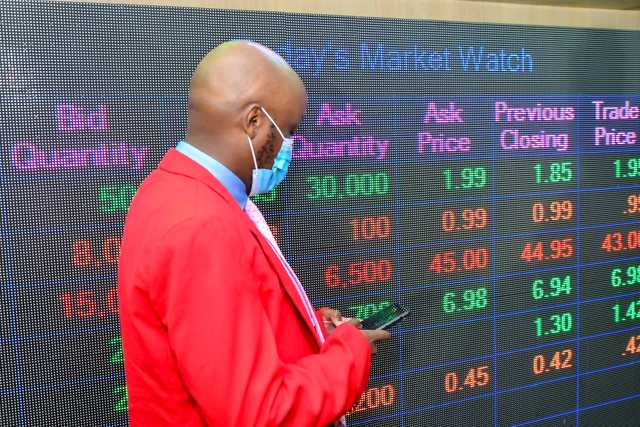Banking, manufacturing stocks and the NSE’s sole listed telco Safaricom are tipped to lead in market performance in the last quarter of the year as the effects of the easing of curfew restrictions filter through into the economy.
Analysts at Mauritius-based investment bank AXYS, which trades locally as AIB-AXYS Africa, said in a note that the market will likely see improved investor sentiment in quarter four, which will drive price gains.
Kenya has been easing its Covid-19 restrictions gradually as infection rates fall, culminating in the removal of the night curfew by President Uhuru Kenyatta on October 20, after 550 days under the restriction.
“We expect increased interest in the banking stocks and Safaricom. The improving economic conditions will likely be reflected in the banks’ quarter three numbers as their loan books expand, asset quality improves, and provisions continue to decrease,” said AXYS in the economy review note.
“The further easing of restrictions, the continued vaccine roll-out and the increasing infrastructure spending by the government will buoy earnings in the manufacturing and construction sectors leading to better results for counters such as Bamburi and EABL.”
Safaricom and large bank stocks have already been outperforming the market in the last year, backed by continuing demand from foreign investors who have been keen on their ability to retain value due to good profits and solid fundamentals.
For the banks, strong profit growth in the first half of the year was a pointer to a return to health, and with it the promise of a resumption of dividend payouts.
Both Equity Group and KCB—the largest listed lenders by market capitalisation and by assets— doubled their net profit for the half year period compared to last year.
A general recovery in the economy will also boost the bourse’s ability to attract retail traders, who have largely been overshadowed by foreigners in terms of trading activity as spending power dropped and people conserved funds instead of investing due to the Covid-led uncertainty.
ekivuva@ke.nationmedia.com
